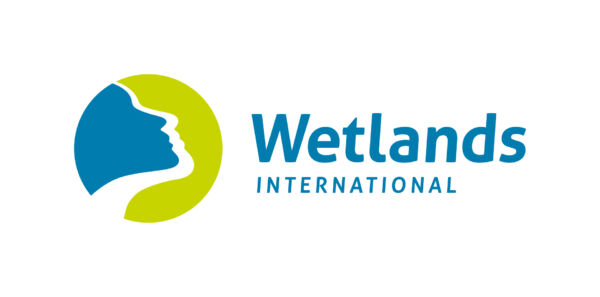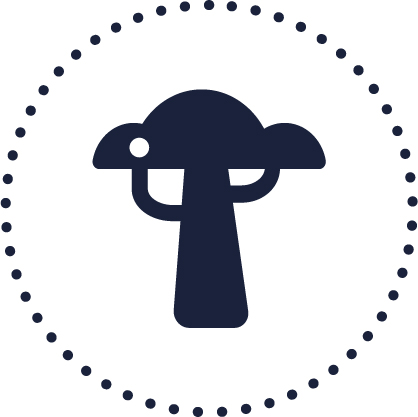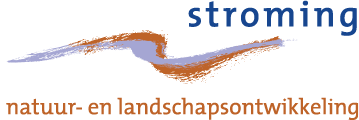Natural Sponges – Wetland solutions to protect against droughts and floods
Wetlands International Europe, an NGO, advocates for wetland protection and restoration by bridging science, policy, and practice. Trusted for scientific knowledge, we inspire action through impactful projects and advocate for effective policies at all scales, collaborating with 12 European NGOs across eight countries.

Overview of the project
Natural sponges are wetlands that capture water at an early stage and delay the runoff, slowing the flow of water before it reaches (or transforms into) a stream. In upstream valleys, this can be achieved by blocking and removing drainage channels to create wetlands. When rainfall exceeds the infiltration capacity of the soil, flows will still be slowed down by natural vegetation in comparison with fast-flowing drainage channels.
The case for rapidly restoring natural sponges has never been more urgent as Europe experiences the impacts of the climate crisis through water and an ongoing cycle of extreme weather, droughts and floods. For more than a decade we have researched areas with high sponge potential, particularly the upstream valleys of the Eifel region which were the epicentre of the floods in 2021. Our modelling results are promising as sponges provide a disproportionately large regulatory effect on reducing flood and drought risk and achieving multiple EU policy objectives, making them true multi-benefit NBS.
Despite the recognition in the EU Strategy on Adaptation to Climate Change that NBS are essential, more EU action is needed. We are part of a coalition of NGOs calling for a new EU Climate and Water Resilience Law that prioritises restoring and protecting freshwater ecosystems such as natural sponges. The presentation will connect to:
– Our latest pilots and research in Europe demonstrating the effectiveness of sponges as NBS and our pilot site in Belgium under Horizon Rewet
– Analyses of the 2021 floods in Germany & Belgium + 2023 floods in Spain, the land-use contribution to peak flood discharge and potential NBS solutions
– Our policy requests as part of the Living Rivers Europe coalition to create a more water resilient Europe
The natural sponge concept involves restoring the absorptive capacity of soils in upper valleys, such as those in the Eifel region of Belgium and Germany
Pilote operation, experimentation
1/1/2023 - project still in progress
In desk research submitted for peer-review, the effect of restoration on peak and base flows and water quality in a catchment in the German Eifel was analysed. Monthly median daily discharge increases vary between 3%-33% in the studied (micro)catchments. The higher median flow rates show that discharge peaks were attenuated and distributed over a longer period, making both extreme peak flows and low flows, less common. The annual maximum peak flows decreased by 12-24% on average. Low flows increase up to 21%, 13% in summer and fall, suggesting drought risk also decreases. Average nitrogen exports decreased 38-50% and phosphorous exports decreased 52-67%. The study highlights the potential of restoration for improving hydrological services, mitigating flood risks and enhancing water quality
Living Rivers Europe developed a position paper using interviews and surveys for a water resilient Europe, with key EU policy asks:
– A fully implemented Green Deal, including adoption of the Nature Restoration Law
– A new Water and Climate Resilience Law setting requirements for Natural Water Reserves to protect water supplies and their catchments in water-stressed areas
– Finance to upscale restoration or protection of floodplains, rivers, wetlands, and natural water retention measures, for instance through a Sponge Facility
– A framework for sectoral water efficiency and abstraction targets at basin level, covering all water users
– Full enforcement of the Water Framework Directive
– Climate Adaptation Proofing new legislative and non-legislative acts
– Elimination of harmful subsidies
EU research funds and private foundations
organisation
Wetlands International Europe is an NGO advocating for the protection and restoration of wetlands for people and nature, in particular by linking science, policy and practice. Using scientific knowledge makes us a well-trusted source of information, while powerful demonstration projects inspire people to act. We engage in advocacy on topics for which we have developed knowledge and experience to stimulate governments and companies to develop and implement effective policies at all scales, from local to global. We bring together 12 European NGO members from eight European countries, working together to raise awareness about wetland ecosystems and jointly advocating for their conservation and sustainable use while developing Nature-based Solutions and informing the implementation of policies
in collaboration
Living Rivers Europe




